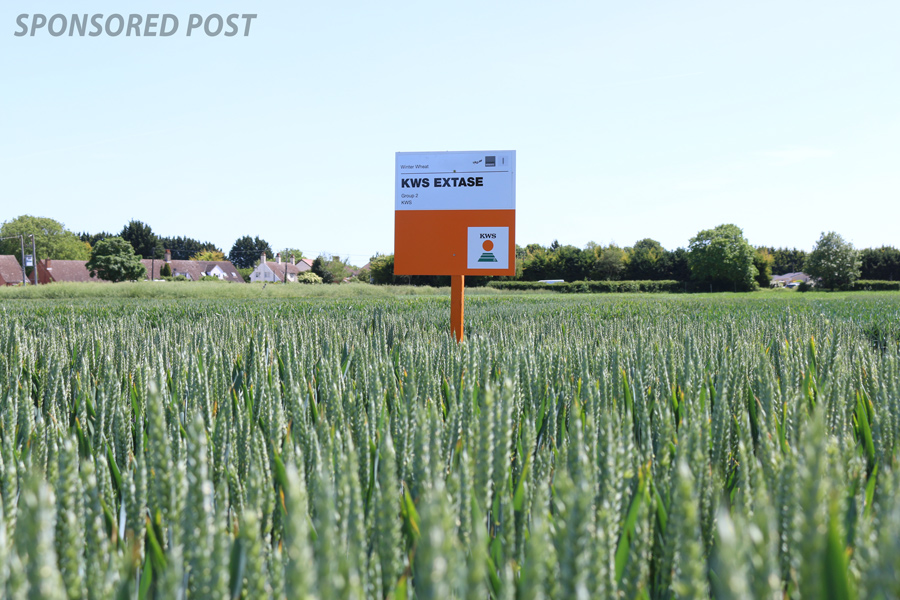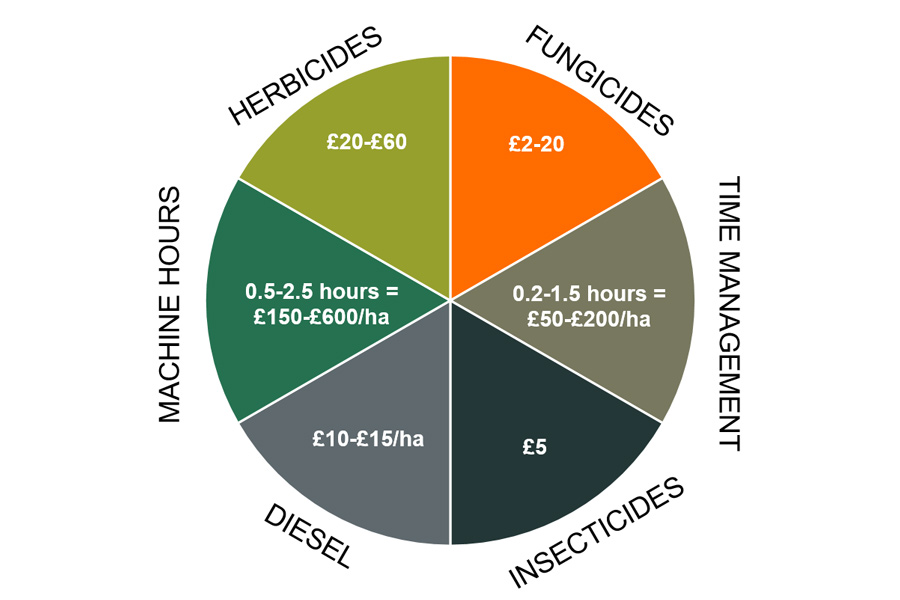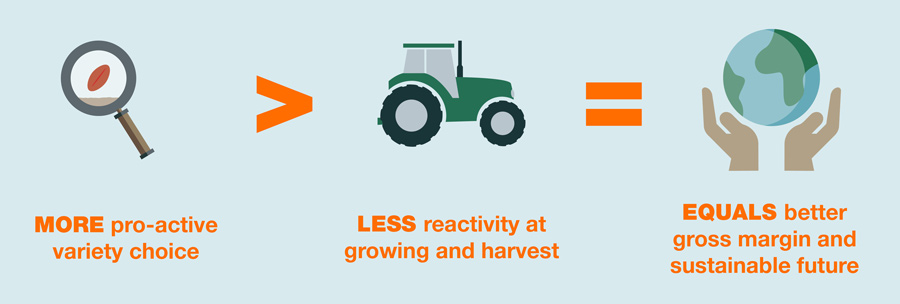Sowing for Peak Performance
15th June 2020
Helping to build the foundations of your future crops success Sowing for Peak Performance (SPP) is KWS’s fundamental breeding objective that underpins all cereal genetic development now and into the future.
Helping to build the foundations of your future crops success Sowing for Peak Performance (SPP) is KWS’s fundamental breeding objective that underpins all cereal genetic development now and into the future. It’s based on the premise that 80% of your crop’s potential is locked in by the seed you buy and sow. Whilst of course, you can fine-tune this with the correct Nitrogen levels, using fungicides wisely to protect it from disease and paying attention to basic management principles, once you’ve made your variety choice your production potential is largely set.
So, to get the best performance on your farm, it is critical that when you choose your variety, you are using a wealth of data to tailor your choice, for both your farm and individual field situation.
Tailored choices are important now and will become increasingly so in the future. In the years ahead we will be entering unchartered waters when it comes to crop production, and many of the accepted principles and practices we take for granted now, will come under increasing scrutiny:
- Much of the chemistry we have come to rely on is slowly being lost to revocation, and what remains is under pressure.
- Our use of essential Nitrogen (N) is also under threat due to growing environmental concerns. The reduction of carbon footprint in crop production will remain a challenge.
- There are worries over loss of N from the system in terms of leaching and its release into the atmosphere.
- Global warming is changing our climate with more extreme weather events predicted and widening variability in growing conditions, often within the same season. Meanwhile, all of this is happening against the backdrop of a global population growing towards 9.0bn in the next 25 years.
It’s time for action!
The way we have produced crops in the past, is not the way we will in the future. What has got us to this point in our agricultural evolution, will not get us to where we need to be without substantial changes.
At KWS, we have always been passionate about genetics and the vital role seed plays in the production equation. We’re proud of what we have achieved to date, and recognise the key role our genetics can play in responding to the demands of the future.
Working with businesses across the agri-supply chain, we’ve identified key requirements that growers should consider if they are to keep their business profitable and environmentally sustainable in the years ahead. Each of these carries a commitment from KWS to ensure our genetics address these needs as far as possible.
5 key requirements for profitable and sustainable UK crops and how SPP can help now and in the future:
- To achieve effective crop management with reduced windows of opportunity
- Climate change has become a reality for many growers over the last few years with growing conditions not just varying dramatically between the years but also within the same season itself.
- KWS actively select for high resilience so that they can help on-farm, spreading workloads at critical periods and buying you time. Note that varieties outside your different market segments may be used to widen spray windows and harvest timings.
- To achieve optimum crop health without a high level of agronomic interventions
- Striving to breed varieties with high levels of resistance to the most damaging diseases has been a key KWS aim for many years and our current portfolio is strong proof of this with some of the highest scores for untreated yields, resistance to Septoria, Mildew and Rusts on the RL.
- But if growing a less resistant type for a specific market requirement, adapt your management practices to boost disease resistance e.g. later drilling of wheats will increase Septoria resistance scores. Different market segments may be used to widen spray windows and harvest timings
- To reduce amount of all inputs used and associated costs
- It’s not just about cutting fungicide spend; choosing the right variety will allow you to save more on labour, diesel and machinery wear and tear, and ultimately replacement.
- To get greater productivity from soils long-term
- Less travel means less potential damage to soils and less time and money spent trying to correct the compaction problems associated with multiple wheelings and carrying out operations in unsuitable conditions.
- From considering how varieties can perform in direct drilled situations through to those that are stiff strawed, variety selection can be tailored to your farm.
- To maximise production/profitability from available resources
- Getting the most production from the resources you have available to you is the key to being sustainable.
- KWS provide a range of high yielding varieties with an assortment of specific agronomic traits. Select your variety based on your soil type, growing conditions, locality to market and maximise your yields.
So how can SPP help me today?
Every farm is unique, and each farm business has different goals – which makes variety choice, highly personalised. However, by using KWS’s SPP ethos, growers can be assured that proactive variety choice will fix circa 80% of your crop performance and pay off in cost and time savings at sowing, during the growing season and through to harvest, for both now and the future.
- Time management
- Extra machine costs (e.g. subsoiler)
- Fungicides
- Herbicides
- Insecticides
- Additional costs (e.g. drying)
Benefits to you:
- Better plant health
- Improved soil quality
- Reduced carbon footprint
- Increased output = extra tonnes
- Higher chance of better quality to attain premiums on offer



